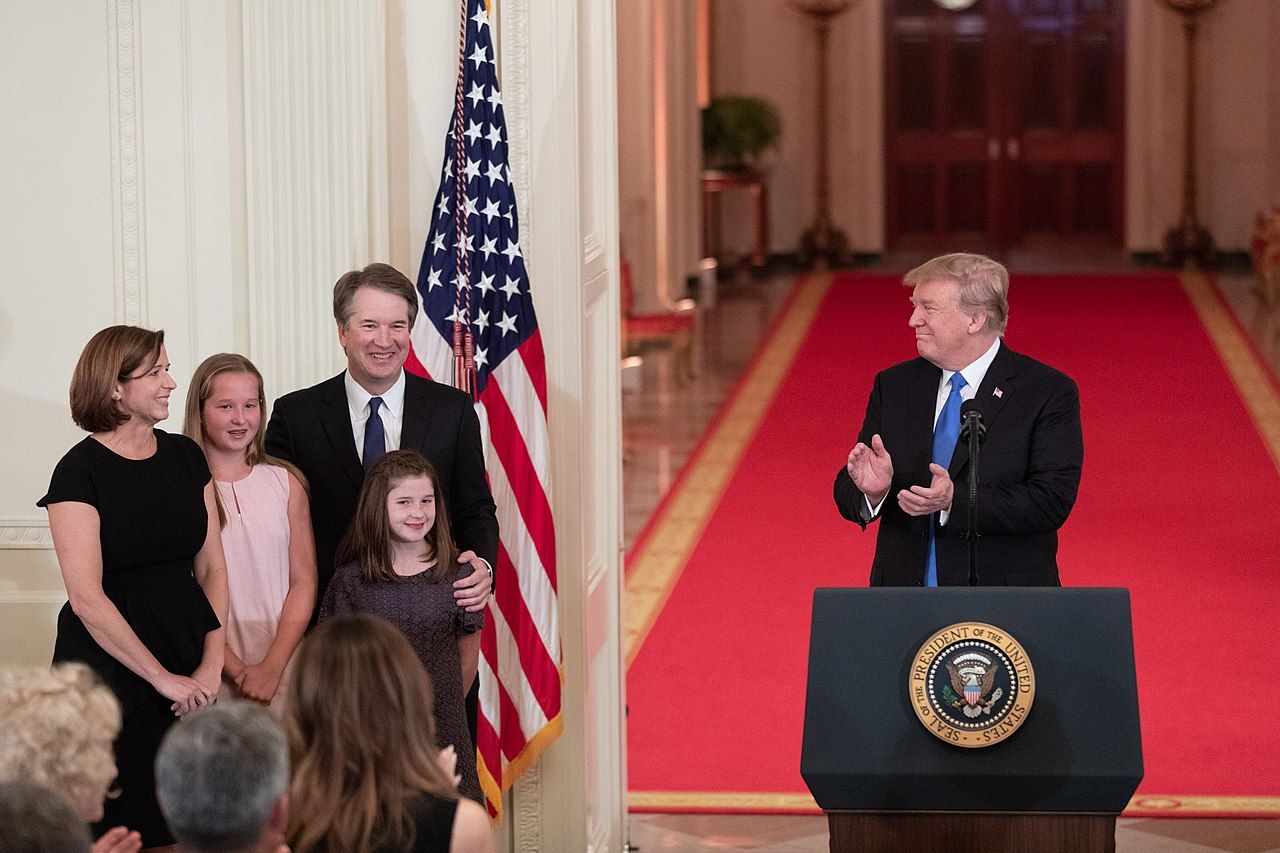Views expressed in opinion columns are the author’s own.
Recently, the sexual misconduct allegations against Brett Kavanaugh — who was confirmed to the Supreme Court on Saturday — have become a hot topic, from courtrooms to coffee counters. While coverage of the hearings may not appear on class syllabi, they have certainly become a part of classroom conversation in related academic fields, such as government and politics, journalism and legal thought. Awareness of current events and controversies pushes students to be educated citizens.
But these hearings are more than just another political circus. For survivors of sexual assault, the hearings are a manifestation of their worst fears. Seeing the trial-esque event on the news must be horrific enough; covering the hearings in classroom settings can add another level of emotional difficulty.
[Read more: UMD students hold emotional rally to protest Brett Kavanaugh confirmation]
Even though political conversations can be important, professors should take care to provide trigger warnings for students, as the statistics on the number of people who have been victims of sexual assault are appallingly high. Triggers can vary from person to person, but publicized and politicized analysis of sexual assault is an inherently sensitive topic.
Additionally, students and staff must remember that discussions of sexual assault and politics shouldn’t allow for much more than intellectual jousting and hypotheticals at the expense of survivors’ mental health. While some students have the luxury of debating “both sides” and talking about assault as an abstract or impersonal concept, many do not.
Professors should make it clear that this is not simply an abstract theoretical dialogue with no negative consequences. Nuanced discussion can be valuable, but it is not necessary to debate the humanity and validity of oppressed groups. In the case of the Kavanaugh hearings, classroom conversations about the complex interactions and manipulation of political parties can contribute to learning.
[Read more: “Such a good place to make noise”: UMD students react to Kavanaugh hearings]
Playing devil’s advocate by doubting survivors’ stories, arguing that offenders deserve the benefit of the doubt or seeking to justify sexual assault in any way is both pointless and harmful. Survivors don’t need to witness philosophical debate about who deserves rights and what is politically or legally correct when they have already suffered the consequences of society’s failures.
Conversations that include the issues of oppressed and historically threatened communities in a solely theoretical manner, for the sake of intellectual debate, often fail to recognize the effects these have on real people. Instead, they center more on liberal white male students’ thoughts about sociopolitical systems, which have only ever worked against other demographics.
This doesn’t mean that the hearings shouldn’t be mentioned in classrooms at all. In fact, being informed about the hearings is important in understanding the political and social trajectory of the country.
However, students should be given adequate warning that the topic will be covered in class to give them time to mentally prepare, and they should not be held responsible if they choose not to attend the class that day. If professors feel reviewing the hearings is essential to the course or academic advancement, then such assignments should be relegated to out-of-class work.
It is not enough to refrain from assigning students to watch the hearings or showing them in class. Discussion in class still means students who have dealt with sexual misconduct are essentially being placed in captive audiences where they must listen to arguments about a tense and devastating subject for participation points and classroom etiquette. Instead, classrooms should be actively working to support students’ mental and emotional health.
While most people on the University of Maryland’s campus don’t seem to be moving to discredit or dismiss Dr. Ford’s story, survivors still have to listen to this discourse day in and day out. Trigger warnings and mindful respect for others would foster a safe environment that promotes mental wellness and academic success. If you are in need of mental or emotional support, please visit the UMD Help Center. To report an incident of sexual misconduct, please visit the Office of Civil Rights and Sexual Misconduct.
Jasmine Baten is a junior English major. She can be reached at jasminebaten137@gmail.com.



